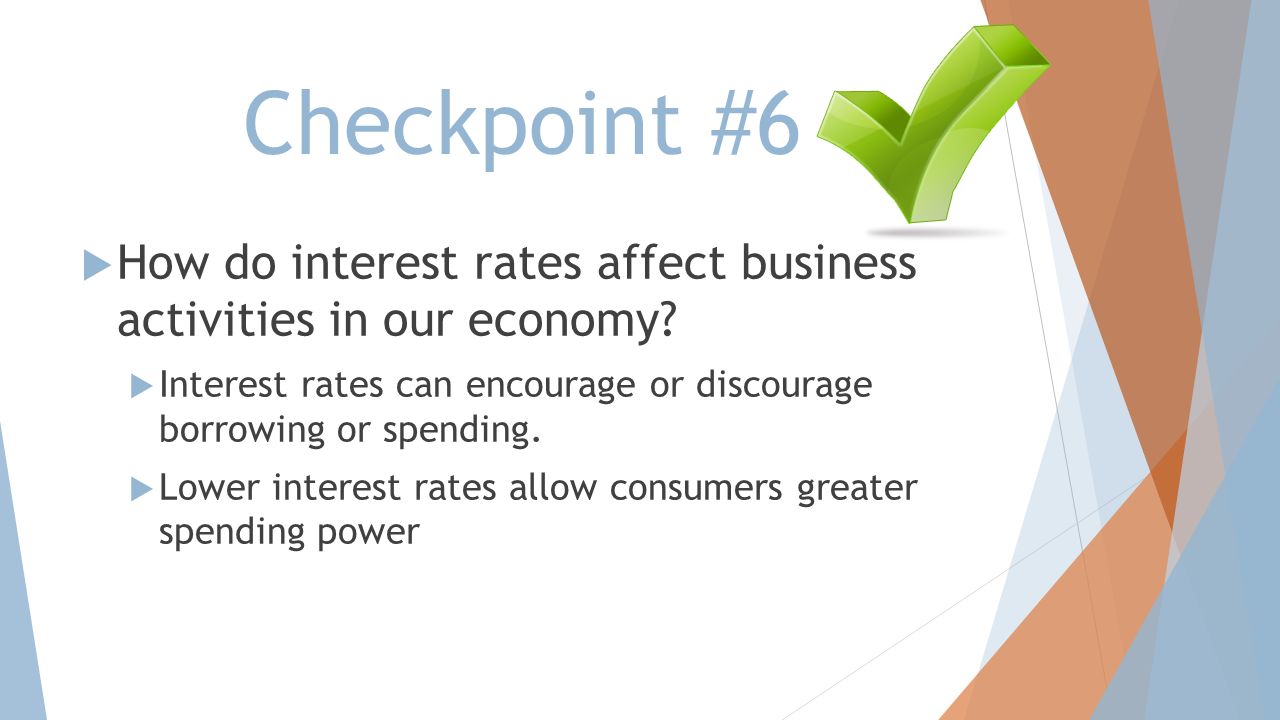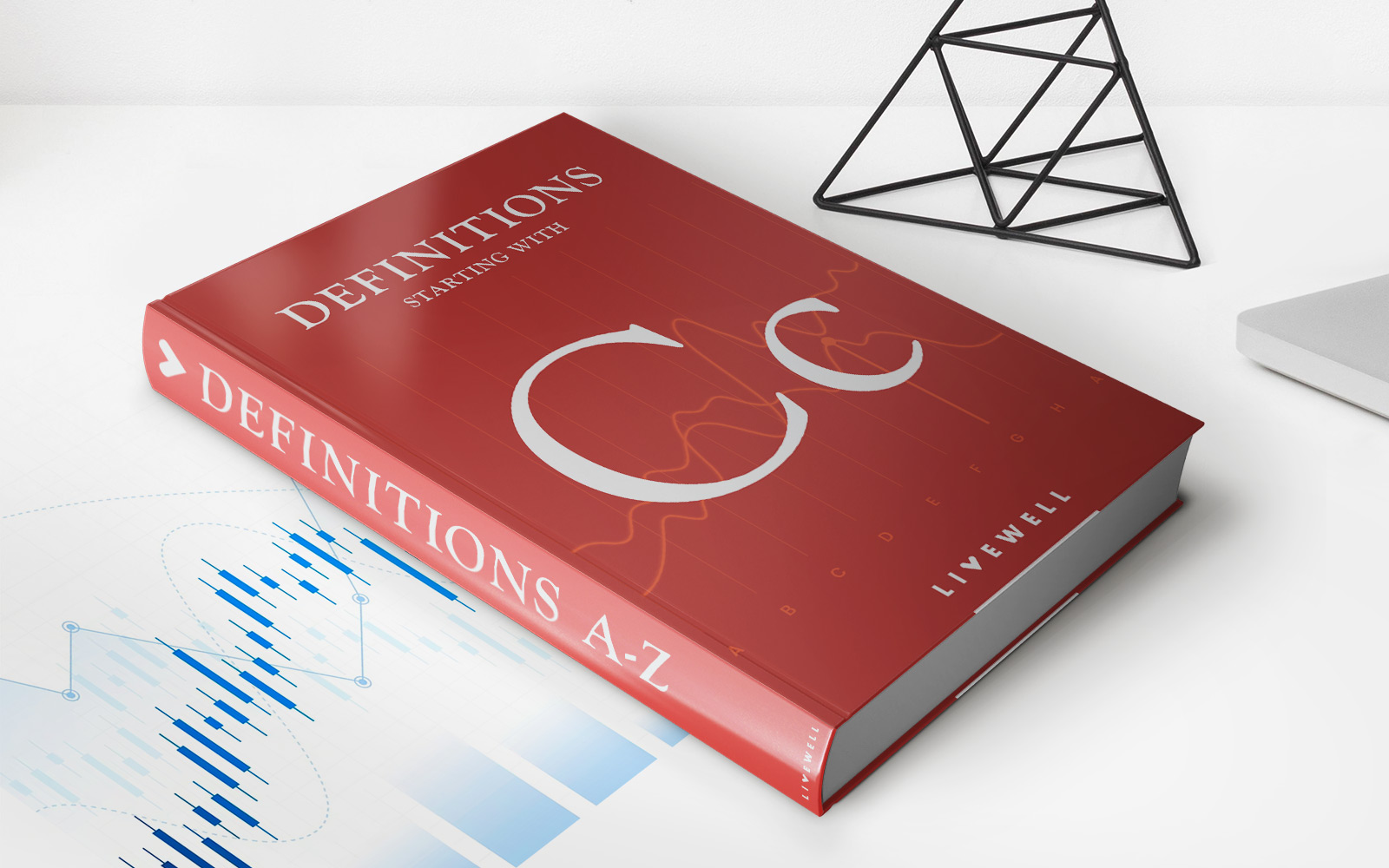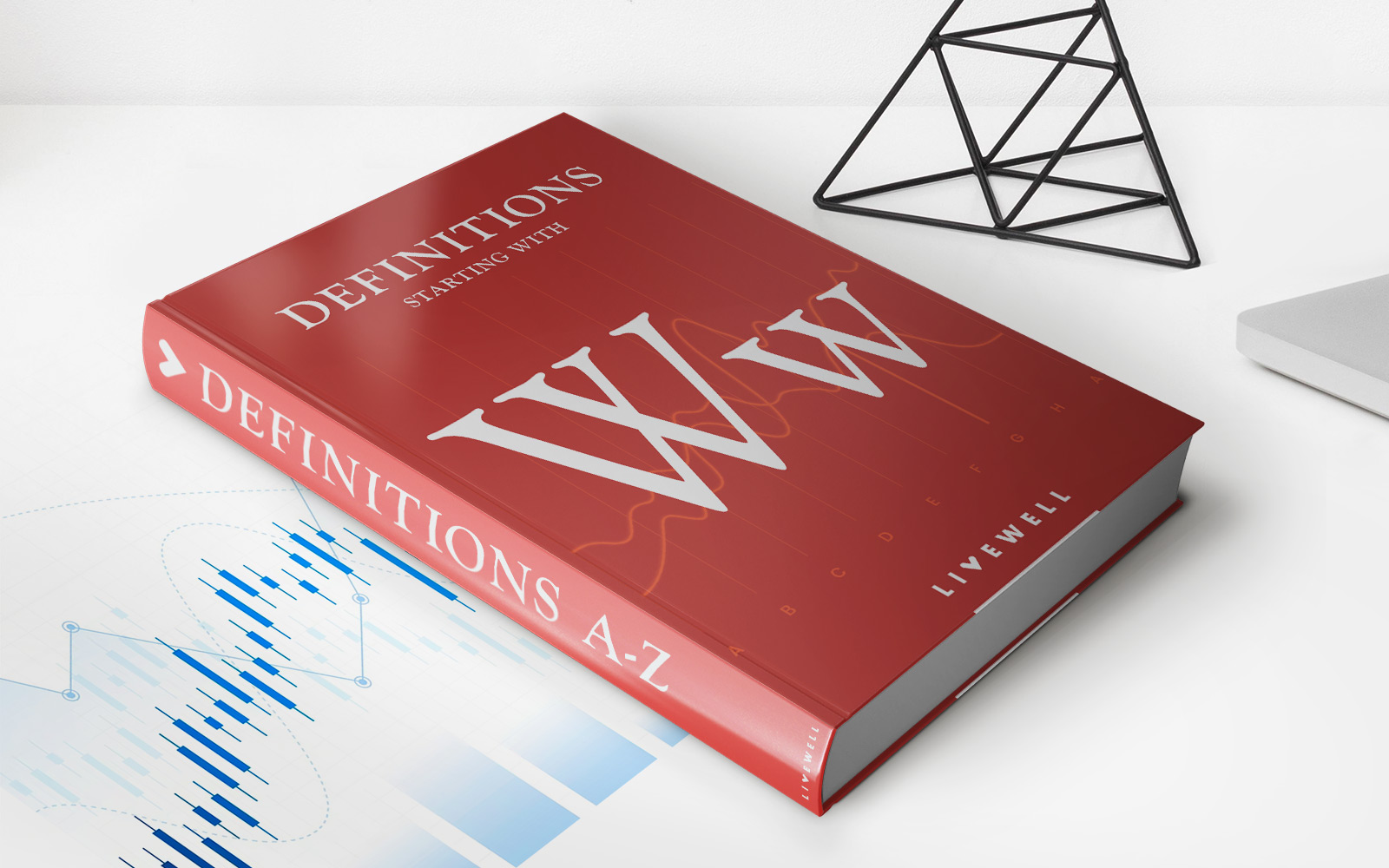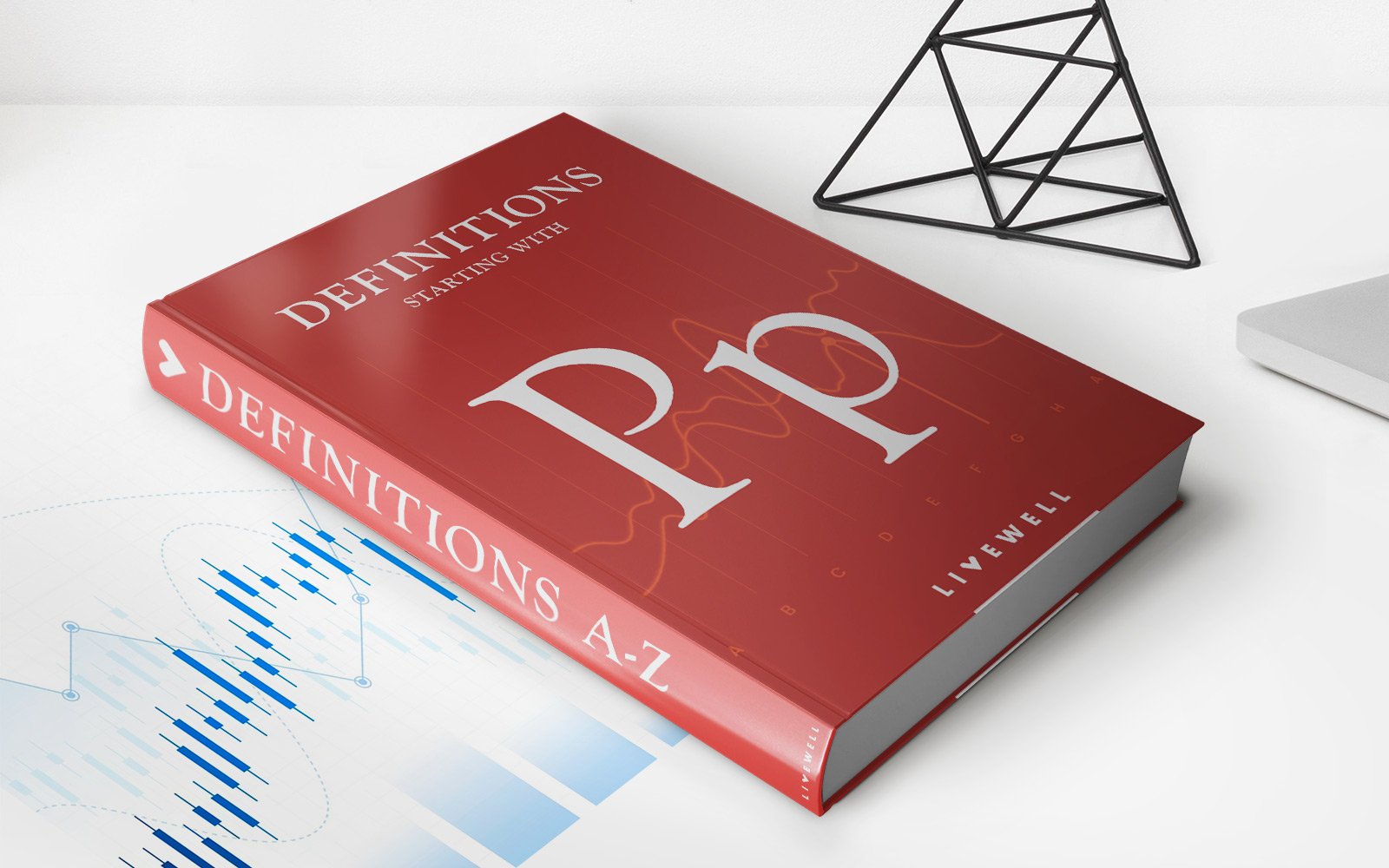

Finance
What Is The Purpose Of Credit In Our Economy?
Modified: March 1, 2024
Learn the importance of credit in the finance industry and how it fuels our economy. Discover how credit enables individuals and businesses to grow and thrive.
(Many of the links in this article redirect to a specific reviewed product. Your purchase of these products through affiliate links helps to generate commission for LiveWell, at no extra cost. Learn more)
Table of Contents
- Introduction
- Definition and Overview of Credit
- Functions and Importance of Credit in the Economy
- Facilitating Exchange and Trade
- Financing Investment and Economic Growth
- Smoothing Consumption and Increasing Standard of Living
- Enhancing Financial Inclusion and Economic Opportunities
- Credit and Economic Stability
- Potential Risks and Challenges of Credit
- Conclusion
Introduction
Welcome to the world of credit! In today’s economy, credit plays a crucial role in driving financial transactions and fueling economic growth. Whether you’re buying a car, investing in a business, or purchasing a home, credit is the lifeblood of these transactions. But what exactly is credit and why is it so important?
Credit can be defined as a financial arrangement where one party, such as a bank or a lending institution, provides funds to another party, typically an individual or a business, with the promise of repayment over time, usually with interest. It allows individuals and businesses to access money and make purchases without having to pay the full amount upfront.
This article aims to shed light on the functions and importance of credit in our economy. By understanding the role of credit, we can appreciate its impact on facilitating exchange and trade, financing investment and economic growth, smoothing consumption, and enhancing financial inclusion. However, it’s important to recognize that credit also poses potential risks and challenges, which will be discussed later in the article.
So, let’s dive into the fascinating world of credit and explore how it powers our economy!
Definition and Overview of Credit
Credit, in its simplest form, refers to the ability of an individual or a business to borrow money or access goods or services with the promise of repayment in the future. It is a financial tool that allows people to make purchases or investments without upfront payment. Credit can take various forms, including loans, credit cards, lines of credit, and mortgages.
When a person or a business receives credit, they enter into an agreement with a lender or a creditor. The terms of this agreement outline the amount borrowed, the interest rate, the repayment period, and any additional fees or conditions. These terms ensure that the borrower understands their obligations and the consequences of non-payment.
Credit serves as a mechanism to bridge the gap between income and expenditure. It enables individuals to make large purchases, such as a new car or a house, even if they do not have the full amount of money at the time of purchase. For businesses, credit is essential for financing operations, expanding production capacity, and investing in new ventures.
When credit is used responsibly, it can have numerous benefits. It allows individuals to build a credit history, which can help them access better interest rates and financial opportunities in the future. It also provides a means for businesses to grow, create jobs, and contribute to the overall economic development.
However, it is important to note that credit comes with a cost. Borrowers are usually required to pay interest on the amount they have borrowed, which adds to the overall cost of credit. Failure to repay debts can result in penalties, damage to credit scores, and even legal action.
In the next sections, we will explore the various functions and importance of credit in our economy. We will see how credit facilitates exchange and trade, promotes economic growth and investment, smooths consumption, and enhances financial inclusion. We will also discuss the potential risks and challenges associated with credit and how they can impact individuals and the overall economy.
Functions and Importance of Credit in the Economy
Credit plays a vital role in driving economic activity and shaping the financial landscape. It serves several key functions that are essential for the functioning of our economy. Let’s explore these functions and understand why credit is so important:
- Facilitating Exchange and Trade: Credit enables individuals and businesses to engage in transactions without the need for immediate cash. By extending credit, sellers can offer goods or services to customers who may not have the full amount of money available, thus facilitating trade. This function of credit is particularly important in the case of large purchases or international trade, where significant sums of money are involved.
- Financing Investment and Economic Growth: Credit plays a critical role in financing investment and driving economic growth. Businesses often rely on credit to fund their expansion plans, invest in new equipment or technologies, and hire additional employees. By providing access to capital, credit fuels innovation, facilitates entrepreneurship, and stimulates economic activity.
- Smoothing Consumption and Increasing Standard of Living: Credit allows individuals to smooth out their consumption patterns and enjoy a higher standard of living. It enables people to make purchases on credit, such as buying a house or a car, and pay for them gradually over time. This allows individuals to enjoy the benefits of these assets while spreading out the cost. Additionally, credit can help individuals cope with unexpected expenses or income fluctuations, ensuring a more stable and consistent quality of life.
- Enhancing Financial Inclusion and Economic Opportunities: Credit plays a crucial role in promoting financial inclusion, especially for those who may have limited access to traditional banking services. By providing credit to underserved populations, such as low-income individuals or small businesses, credit institutions can empower them to start businesses, invest in their education, or improve their living conditions. This, in turn, leads to increased economic opportunities and reduced income inequality.
The importance of credit in our economy cannot be overstated. It enables individuals and businesses to access the necessary resources for growth and prosperity. It promotes economic activity, creates jobs, and contributes to the overall well-being of society. However, it is essential to recognize that credit comes with its own set of risks and challenges, which we will explore in the subsequent sections.
Facilitating Exchange and Trade
One of the primary functions of credit in the economy is to facilitate exchange and trade. Credit allows individuals and businesses to engage in transactions even when they do not have immediate access to sufficient cash. This function of credit is especially crucial for large purchases, expensive assets, or in situations where immediate payment is not feasible.
Imagine you are looking to purchase a new car. Instead of paying the full amount upfront, you can obtain credit through an auto loan. The lender provides you with the necessary funds to buy the car, and you agree to repay the loan over a specified period, usually with interest. Through this credit arrangement, you can drive home in your new car without having to save up the entire purchase price.
In the business world, credit is vital for facilitating trade on a large scale. For example, a manufacturer may require raw materials or components to produce their products. However, purchasing these materials upfront in cash could strain their cash flow. By utilizing trade credit, where suppliers provide goods with delayed payment terms, the manufacturer can acquire the necessary materials and produce goods, which can then be sold to customers who may also make purchases on credit. This cycle of credit enables the smooth flow of goods and services throughout the economy.
Furthermore, credit plays a vital role in supporting international trade. Exporters and importers often engage in trade finance, in which banks provide credit facilities and financial instruments to facilitate trade transactions across borders. These include letters of credit, which guarantee payment to the exporter once specified conditions are met, and export financing, which provides loans or credit lines to finance export activities.
Overall, credit plays a fundamental role in enabling the exchange of goods and services. By providing financial flexibility and allowing individuals and businesses to defer payment, credit empowers transactions that may not be possible through immediate cash transactions alone. This function of credit not only fuels economic activity but also promotes growth, innovation, and prosperity in the global marketplace.
Financing Investment and Economic Growth
Another critical function of credit in the economy is financing investment and driving economic growth. Credit plays a crucial role in providing individuals and businesses with the necessary resources to invest in various ventures, expand operations, and fuel economic development.
Businesses often rely on credit to finance their investment projects. Whether it’s purchasing new equipment, expanding production capacity, or investing in research and development, credit allows businesses to access the capital needed to drive growth and innovation. Without credit, many businesses would struggle to fund their operations and carry out strategic initiatives.
Entrepreneurs and startups also heavily depend on credit to turn their ideas into reality. Credit allows them to secure the funding needed to launch their businesses, hire employees, and develop new products or services. By providing access to capital, credit empowers entrepreneurs to take risks, create jobs, and contribute to overall economic growth.
Moreover, credit plays a vital role in supporting infrastructure development and public projects. Governments often rely on credit to finance large-scale investments in areas such as transportation, education, healthcare, and energy. These investments not only create jobs and stimulate economic activity during the construction phase but also provide long-term benefits to society, such as improved infrastructure and services.
Furthermore, credit enhances the availability of housing finance, enabling individuals and families to purchase homes. Mortgages, which are long-term loans secured by the property, allow people to spread the cost of homeownership over several decades. This makes housing more affordable and fosters homeownership rates, which in turn drives construction activity, creates jobs in the housing sector, and contributes to economic growth.
By financing investment and providing access to capital, credit acts as a catalyst for economic growth. It enables businesses to expand, innovate, and create employment opportunities. Additionally, credit supports infrastructure development, housing, and other public projects, which contribute to the overall well-being of society and enhance the quality of life for individuals.
Smoothing Consumption and Increasing Standard of Living
Credit plays a significant role in smoothing consumption patterns and enhancing the standard of living for individuals and households. It allows individuals to make purchases and enjoy the benefits of goods and services immediately, even if they don’t have the full amount of money upfront. By spreading the cost of purchases over time, credit enables individuals to align their consumption with their income and improve their quality of life.
One of the primary ways credit smooths consumption is through the use of loans. For example, when someone wants to buy a house, they typically secure a mortgage, which allows them to purchase the property and pay back the loan over a long period, usually 15 to 30 years. This enables individuals to become homeowners and enjoy the benefits of owning a property, such as stability, equity building, and the pride of homeownership. Without credit, many people would struggle to save enough money to buy a house outright.
Similarly, credit cards offer individuals the flexibility to make purchases on credit and repay the amount due over time. This allows consumers to make larger purchases, such as furniture, appliances, or electronics, and pay for them gradually instead of having to save up for extended periods. Credit cards also provide a convenient and secure means of payment, allowing individuals to make online purchases and access a wide range of goods and services.
Credit also plays a crucial role in managing unexpected expenses or income fluctuations. For instance, if a person experiences a medical emergency or a sudden major car repair, they may not have the necessary cash readily available. By utilizing credit, individuals can cover these unforeseen expenses and repay the amount over time. This ensures that they can address urgent needs without depleting their savings or compromising their financial stability.
By smoothing consumption, credit contributes to an increased standard of living. It allows individuals to access goods and services that improve their quality of life, such as homes, cars, education, and appliances. Additionally, credit provides individuals and households with a safety net, allowing them to address unexpected expenses and manage financial uncertainties more effectively.
However, it’s important to use credit responsibly and avoid excessive debt. It’s crucial for individuals to carefully assess their financial situation, understand the terms and conditions of credit agreements, and make informed decisions about their borrowing. By using credit wisely, individuals can reap the benefits of enhanced consumption and a better standard of living without falling into financial distress.
Enhancing Financial Inclusion and Economic Opportunities
Credit plays a pivotal role in enhancing financial inclusion and creating economic opportunities for individuals and communities. It provides access to capital and financial services to those who may have limited or no access to traditional banking systems.
Financial inclusion refers to the accessibility and availability of financial services to all individuals, especially those from low-income or underserved communities. Credit plays a crucial role in promoting financial inclusion by providing individuals with the means to invest in their education, start businesses, or improve their living conditions.
For example, microcredit has gained significant attention in recent years as a tool for empowering individuals in low-income communities. Microcredit institutions extend small loans to individuals who lack traditional collateral or credit history, enabling them to become entrepreneurs and start small businesses. These loans, along with financial training and support, help individuals generate income streams, create employment opportunities, and contribute to local economic development.
Credit also plays a crucial role in supporting entrepreneurship and self-employment. Small and medium-sized enterprises (SMEs) often struggle to access traditional bank loans due to lack of collateral or limited credit history. However, non-traditional lending models and alternative financing options, such as peer-to-peer lending and crowdfunding platforms, provide avenues for these enterprises to access much-needed credit. By enabling SMEs to access capital, credit fosters innovation, job creation, and economic growth.
Furthermore, credit helps individuals and communities invest in education and skill development. Student loans bridge the gap between the cost of education and individuals’ ability to pay for it upfront. This allows students to pursue higher education, acquire knowledge and skills, and enhance their employability. Similarly, credit for vocational training and skill development programs enables individuals to acquire specialized skills and seize economic opportunities in emerging sectors.
By enhancing financial inclusion and providing economic opportunities, credit promotes social mobility and reduces income inequality. It enables individuals to break free from the cycle of poverty, develop financial independence, and contribute to the overall economic prosperity of their communities. Moreover, by empowering underserved individuals and communities, credit fosters inclusivity and creates a more equitable society.
However, it is important to ensure that credit is extended responsibly and with adequate consumer protection measures. Financial education, transparent lending practices, and effective regulatory frameworks all play a crucial role in ensuring that credit is a force for positive change and not a burden for vulnerable individuals and communities.
Credit and Economic Stability
Credit has a significant impact on the stability of the economy as a whole. It influences the overall financial health and resilience of individuals, businesses, and the financial system itself. Understanding the relationship between credit and economic stability is crucial for maintaining a robust and sustainable economy.
One aspect of credit that impacts economic stability is its role in stimulating economic growth. As mentioned earlier, credit fuels investment, entrepreneurship, and consumption. By providing access to funding, credit promotes economic activity, creates jobs, and drives overall economic growth. This positive cycle of credit-supported growth contributes to stability by generating income and sustaining economic prosperity.
However, excessive credit expansion can also pose risks to economic stability. When credit is extended too readily, without proper risk assessment or adequate borrower capacity, it can lead to the accumulation of unsustainable levels of debt. This can create financial imbalances and fragilities within the economy. If borrowers are unable to meet their debt obligations, it can result in a wave of defaults, leading to financial instability and a contraction in economic activity.
Another critical aspect is the interconnectedness between credit and the stability of the financial system. Financial institutions, such as banks and lenders, heavily rely on credit transactions for their operations. When credit quality deteriorates or borrowers default, it can undermine the stability of these institutions. This can have ripple effects throughout the financial system, leading to liquidity shortages, weakened trust, and potential systemic risks.
Efforts to promote financial stability often involve prudent credit risk management practices and the implementation of regulatory frameworks. Adequate risk assessment, monitoring, and regulation are essential to prevent excessive credit growth, unsustainable levels of debt, and the buildup of systemic risks. Conversely, overly restrictive credit policies can stifle economic activity and hinder growth. Therefore, striking the right balance between facilitating access to credit and ensuring responsible lending practices is crucial for maintaining economic stability.
During times of economic downturn or financial crises, credit availability can play a crucial role in stabilizing the economy. When confidence is low and liquidity is scarce, government interventions through measures such as monetary policy or fiscal stimulus can inject liquidity into the financial system and provide credit support to businesses and individuals. This helps alleviate financial stress, support economic recovery, and restore stability.
Overall, credit and economic stability are inextricably linked. Responsible credit expansion can fuel economic growth and prosperity, while excessive or mismanaged credit can undermine stability. Effective credit risk management, robust regulatory frameworks, and timely policy interventions are key to ensuring that credit contributes to sustained economic stability, resilience, and long-term prosperity.
Potential Risks and Challenges of Credit
While credit plays a crucial role in our economy, it is not without its risks and challenges. It is important to recognize and understand these risks to ensure responsible borrowing and sustainable financial practices. Here are some key risks and challenges associated with credit:
- Overindebtedness: One of the primary risks of credit is overindebtedness. Borrowers who accumulate excessive debt may struggle to meet repayment obligations, leading to financial stress, bankruptcy, and a negative impact on credit scores. It is essential to borrow within one’s means and carefully assess the ability to repay before taking on credit.
- Interest Rates and Costs: Credit comes with interest rates and additional costs. High interest rates can significantly increase the cost of borrowing over time, reducing affordability and potentially leading to financial burden. Borrowers should compare different loan options and understand the total cost of credit before making borrowing decisions.
- Credit Quality and Default Risk: Lenders face the risk of borrowers defaulting on their loan obligations. This risk increases if credit is extended without proper risk assessment or if borrowers’ financial situations deteriorate over time. Banks and lenders mitigate this risk by evaluating creditworthiness through credit checks, income verification, and collateral, but there is still a possibility of defaults.
- Systemic Risks: Excessive credit growth and interconnectedness within the financial system can lead to systemic risks. If there is a widespread issue with loan defaults or financial instability, it can have ripple effects throughout the economy, potentially leading to financial crises and economic downturns. Proper risk management practices and regulatory oversight are essential to mitigate systemic risks.
- Unequal Access to Credit: Access to credit is not equal for everyone. Marginalized individuals or those with limited credit history or collateral may face challenges in accessing credit, limiting their ability to invest, start businesses, or improve their financial situations. Promoting financial inclusion and addressing barriers to credit access is important for a fair and inclusive economy.
- Predatory Lending Practices: Some unethical lenders may engage in predatory lending practices that exploit borrowers with high interest rates, hidden fees, and deceptive practices. Borrowers should be cautious of such practices and work with reputable lenders who are transparent and abide by fair lending practices.
- Cyclical Nature of Credit Markets: Credit markets are cyclical, meaning they go through periods of expansion and contraction. During economic downturns, credit availability may decrease as lenders become more risk-averse, which can hinder economic recovery. Similarly, during periods of credit expansion, there is a risk of excessive lending and the buildup of financial imbalances.
It is important for individuals, businesses, and policymakers to be aware of these risks and work towards responsible credit practices. Borrowers should carefully assess their financial situations, understand the terms and costs of credit, and borrow within their means. Lenders and regulators must ensure responsible lending practices, robust risk management frameworks, and appropriate consumer protection measures to safeguard against credit-related risks and maintain a stable and sustainable credit environment.
Conclusion
Credit serves as a critical pillar of our economy, facilitating exchange, driving economic growth, and enhancing financial inclusion. It enables individuals and businesses to access funds for investments, purchases, and entrepreneurship, thereby fueling economic activity and contributing to prosperity. By smoothing consumption, credit allows individuals to enjoy a higher standard of living and manage financial uncertainties. Additionally, credit plays a vital role in promoting financial inclusion, providing economic opportunities to underserved communities, and reducing income inequality.
However, it is important to be mindful of the potential risks and challenges associated with credit. Overindebtedness, high interest rates, credit quality risks, and unequal access to credit are issues that need to be addressed. Proper risk management, responsible lending practices, and robust regulatory frameworks are essential to mitigate these risks and ensure a stable credit environment.
As individuals, we should approach credit with caution, borrow responsibly, and make informed decisions about our financing needs. It is crucial to understand the terms and costs of credit and assess our ability to repay before taking on debt. Financial education plays a key role in empowering individuals with the knowledge and skills to navigate the complexities of credit.
For businesses, credit is a valuable tool for growth, innovation, and job creation. However, it is important for businesses to carefully evaluate their borrowing needs, assess risks, and ensure sufficient cash flow to meet repayment obligations. Responsible borrowing practices are vital for ensuring the long-term sustainability and success of businesses.
Overall, credit plays a fundamental role in our economy, driving economic activity, promoting financial inclusion, and improving living standards. By understanding the functions, benefits, and potential risks of credit, we can make informed financial decisions, foster responsible borrowing practices, and contribute to a stable and prosperous economy for all.














